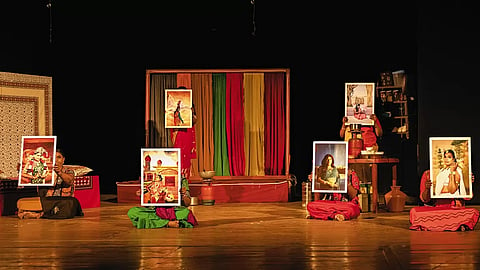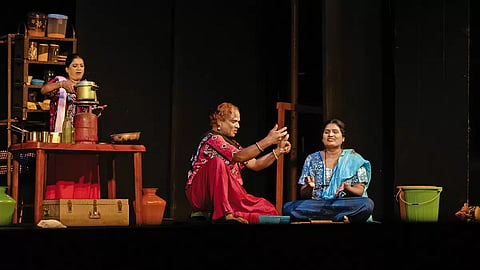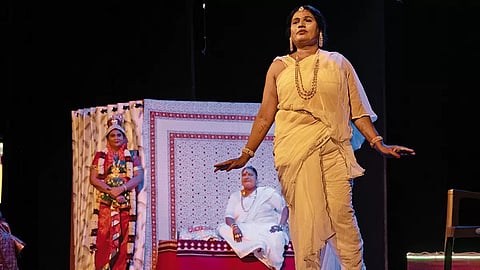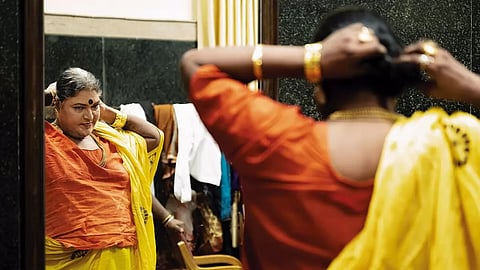Banu, Bernie, Chandini, Devi Parveenamma, Nadiya, Lakshmi, Revathy, Shanthi, Shakila, Shobha, Shobhana and Reshma are 12 transwomen, transmen, kothis and gender non-conforming persons whose dreams have often been denied due to the heterosexual norms of the binary, and even caste and class hierarchies for over 50 years. Some of them have two names. But most of them aspire to be glamorous stars on the silver screen. Yet, they are all too familiar with the cold whispers of society that believes that beauty fades and desire wanes with the passage of time. The 12 community models hope to challenge this perception. Truth Dream gave them a chance to step into their dream personas and perform femininity: whether it was a classical dancer or a goddess from Tamil and Kannada films of the 1960s.
Photo Essay: Challenging Gender Perceptions
Dreams are often denied for non-binary artists who aspire to be glamorous stars on the silver screen. But 12 community models hope to challenge this perception.




Truth Dream is the brainchild of Chandni, a social worker and artist who also co-founded the not-for-profit organisation, Payana. Since the first exhibition in 2021, the show has been seen at multiple venues across Karnataka. It narrates lived desires that break through the ideals of beauty and ageing, of fixed gender identities, and permitted dreams.
Photographs by Sudhir Damerla; Text by Anisha Reddy
Published At: